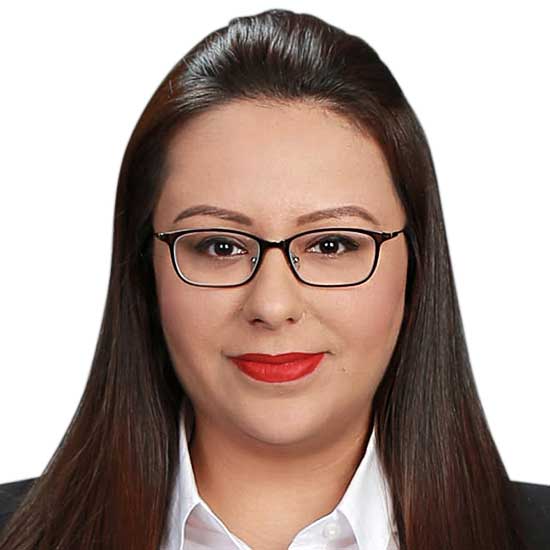Singapore is known as a “fine city” in more ways than one, with its safe, clean, and orderly streets maintained through a system of fines for various petty offences. However, violating the Misuse of Drugs Act in Singapore entails more than just a fine. It can result in corporal punishment or even the death sentence, making it imperative to have a good criminal lawyer well-versed in Singapore drug laws to represent you.
Thus, to steer clear of legal trouble and stay within the bounds of Singapore drug laws, it is crucial to familiarize yourself with the Misuse of Drugs Act (MDA). This comprehensive statute outlines the regulations surrounding the possession of drugs and harmful substances, as well as the corresponding penalties. If you ever find yourself in a situation related to the Singapore drug laws, it is essential to seek the expertise of a skilled criminal lawyer to protect your rights and interests.
Remember, understanding and adhering to the Singapore drug laws is crucial to maintaining compliance and avoiding severe consequences.
1. Marijuana, even medical marijuana, is outlawed in Singapore. No exceptions. In certain countries like Belgium, Canada or some parts of the United States, marijuana (or cannabis) is legal for medical reasons. However, in Singapore, it is strictly outlawed, along with other drugs like cocaine, opium, heroin, “ice”, Ketamine (or Special K), and ecstasy.
These are classified as “controlled drugs”, which are categorised by the MDA into three different classes. And take note, the law strictly dictates in Part 1, Section 2 that “anything that contains any such substance or product” is also not allowed. This includes food and drink that may be laced with drugs, such as gummies and cookies.
2. You can be jailed for teaching and publishing information on how to cultivate cannabis, opium, or coca plants.
Beyond smoking or consuming products made with cannabis, opium, coca plants or other drugs, cultivating the plant itself or even teaching someone to grow cannabis (whether to produce marijuana or cocaine) is punishable by law. Even publishing information about how to grow cannabis is banned!
According to section 11(d) of the MDA, this can easily get you imprisoned for a term not exceeding 10 years on your first offense, and two to 10 years for the former, and a fine of until $10,000, imprisonment for up to five years, or both for the latter. And yes, publishing information even on social media is counted.
3. Whether you were aware of your possession or no, possession of controlled drugs and substances is punishable by law.
Ignorance of the law is not an excuse. That’s why it is important to be careful about what you carry. Do not promise to carry things for other people, unless you know exactly what they’re giving you. And most importantly, never accept anything from a stranger. They could be using you as a drug mule, and if the police find restricted items among your things, you’ll be the one facing the consequences.
Under section 8(a) of the MDA, you can be imprisoned for a maximum of 10 years, be fined $20,000, or both for possessing controlled drugs. And the punishment will depend on the quantity, the circumstances, and whether this is a first-time or repeated offence.
4. Even if you possess only the utensils used for consuming drugs, you can be fined or imprisoned.
Since Singapore is very strict when it comes to anything drug-related, mere possession of the equipment used to make or use the drug itself can get you in a lot of trouble. According to Section 10(a)(2) of the MDA, “it shall not be a defense to a person…to show that the equipment, material or substance is the subject of a license, permit or any other form of authorisation issued or granted under any regulations made under section 10B.” This means that you cannot justify that you have the right to possess these items just because you obtained these items as a result of a license or any form of authorisation.
You can be fined up to $10,000, face imprisonment of up to 3 years, or both in this case.
5. “I did not know that the pill I took was an illegal drug” is not an excuse.
To determine if someone has taken controlled drugs, the authorities will take samples of your urine or hair to be tested. If the test results are positive, the police will presume that you have consumed drugs. This is covered in Section 22 of the MDA.
You can try to prove that the act was involuntary, but that can be very difficult. Saying that you did not know that the pill you consumed or the roll-up that you smoked was an illegal substance will not hold water with the law. Again, ignorance and negligence are not acceptable excuses.
6. Homeowners, landlords, and tenants can be charged if drugs are found on their premises.
As a homeowner, landlord, or tenant, you need to make sure that your space is drug-free. According to Section 11 of the MDA, if you and the people in your residence are caught producing, consuming, or even trafficking drugs, you will be charged accordingly.
Take note that if the police find said drugs in your home, whether it’s yours or something your friend left behind, you too can be charged for illegal possession, according to Section 18 of the MDA – unless you can prove otherwise. Even if you didn’t actually take the drug or make physical contact with it, you’re still presumed to be guilty. And yes, according to Section 18(1)(d), even owning “the keys of any place or premises or any part thereof in which a controlled drug is found” counts.
7. If you give information about illegal drug operations in court proceedings, your identity will be protected by the police.
According to Section 23 of the MDA, if you’re a witness or informant in any criminal and civil proceedings that involve drugs, the court will ensure your safety by protecting your personal information. This means that the witness is not obligated to answer questions that will give away the informant’s identity or lead to it. And on the same note, if there are books, documents or material evidence that will give away your identity, the court can hide it from public view or even destroy it if needed.
Exceptions, however, are discussed in Section 23 subsection 3. In cases where your identity is crucial in your verdict, or if it was proven that the statements you made were false, or if you didn’t believe that the statement you made in the first place was true – the court can disclose your identity.
8. Rehabilitation for drug addicts only applies for first- and second-time users.
The MDA defines a drug addict as someone who has “a desire or need to continue to take that controlled drug” or “a psychological or physical dependence upon the effect of that controlled drug.” With that being said, if you are suspected to be a drug addict, you’ll need to be examined, tested, and observed.
If results show that you are indeed a drug addict, Section 34, subsection 2 says that you may be admitted to a rehabilitation center for treatment. This can take place for six months or even up to three years, depending on the severity of your addiction. However, this only applies if you’re arrested because of drug consumption alone.
In some cases, you may be asked to go to a rehabilitation centre instead of serving a jail sentence. This usually applies for first- and second-time users. But if you are arrested for drug consumption after the second time, you’ll get a longer jail sentence instead. Meanwhile, if you’re aged 16 to 21, you’ll be mandated to stay for six months at the Community Rehabilitation Centre (CRC).
9. Singaporeans or Permanent Residents cannot consume drugs, even while abroad.
You may think that the MDA only applies within Singapore, but that’s not the case. According to Section 8(a) of the MDA, a Singaporean citizen or permanent resident who was found to have consumed drugs abroad will be “dealt with as if that offence had been committed within Singapore and punished accordingly”. Thus, random checks are conducted in Singapore’s entry points, which include the Changi Airport and Woodlands Checkpoint to see if travellers have consumed drugs before entering Singapore.
10. You could be charged with the death penalty for drug trafficking.
Out of the three options—possession, consumption, and trafficking—drug trafficking is the most serious offence. This includes selling, transporting, delivering, distributing, or even offering to do any of the aforementioned acts. On the same note, if you ordered anyone to do this on your behalf, regardless of whether the person is in Singapore, you can be convicted for drug trafficking.
Depending on the gravity of the case, as well as the amount of drugs involved, the penalty for drug trafficking can vary. This includes being fined, imprisoned, caned, or even sentenced to death by hanging.
But what is the difference between possession and trafficking? According to Section 17 of the MDA, if you possess more than the prescribed quantity—more than 100 grams of opium, for example—it is considered drug trafficking instead of mere drug possession.
According to Section 33(b) of the MDA, you will be sentenced to death if you have more than the listed amount of drugs. For example, if you have more than 1,200 grams of opium and more than 30 grams of morphine or in some other cases, more than 30 grams of cocaine or more than 500 grams of cannabis. Illegally manufacturing these drugs will warrant you the death penalty.
However, you may avoid the death penalty (and mitigate your sentence down to caning and life imprisonment instead) if you can prove that you merely transported, sent, or delivered the drug, or if, according to Section 33B, Subsection 2b, “substantively assisted the Central Narcotics Bureau in disrupting drug trafficking activities within or outside Singapore.”
Given the strict rules on drug use in Singapore, it is better to be safe than sorry—avoid drug use altogether. However, should you get into any trouble, you should hire a good criminal lawyer in Singapore to represent you. The legal team at IRB Law has had extensive experience dealing with such cases and will be able to put together an action plan in the best of your interests. For enquiries, call 6298 2537 today.




